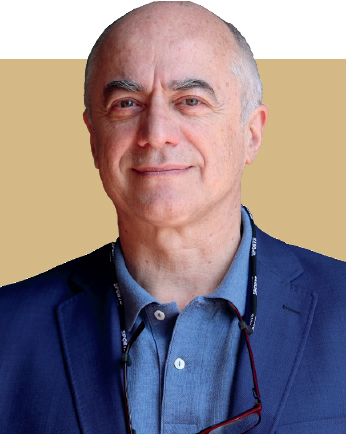J. Carlos Santamarina

PhD 1987
G. Wayne Clough Professor
Georgia Institute of Technology
"Academia is a vocation."
Carlos Santamarina says his academic career has been inspired and made possible by thoughtful mentors, committed colleagues, curious students, unconditional friends, and the most supportive family.
Carlos describes the foundational education he received in Argentina as both exceptional and unforgiving. During the military dictatorship, the geotechnical team at the Universidad Nacional de Córdoba was a lively and thoughtful group quietly inspired by Leopoldo Moll to solve pressing engineering problems.
The Master’s degree in Civil Engineering he received at the University of Maryland opened his mind to academia in the United States. His professor, Deborah Goodings, encouraged him to tackle world challenges and generously guided him to find PhD opportunities.
In 1984, Carlos arrived at Purdue University where he was fortunate to learn from some of the great minds that developed geotechnical engineering in the 20th century. Jean-Lou Chameau infused his enthusiasm throughout the program and his PhD. Together, they worked to explore the potential of fuzzy logic during the early stages of artificial intelligence.
Carlos’ first academic job was at New York University from 1987 to 1991. It was an inspiring intellectual enclave where scientific curiosity flourished in the middle of a vibrant yet often abrasive city. The transition to the University of Waterloo in 1992 was a welcome relief for the young family with three children, and it became an academic launching point for long-lasting research in energy and mining, with an emphasis on building scientific foundations to underpin engineering solutions.
In 1996, Carlos moved to Georgia Tech where he consolidated earlier research to advance new investigations in soft rocks, hydrates, and CO2 storage. From 2015 to 2022, Carlos continued his research at King Abdullah University of Science and Technology in Saudi Arabia and expanded it further to include oil and gas — both onshore and offshore. He would then return to Georgia Tech in 2023 where he and his research team are advancing new and exciting research lines to address evolving energy and mining challenges.
